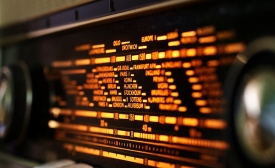united states
The Japanese defence ministry reports that in the first half of this year it has had to scramble jets more than 230 times in response to Chinese incursion into its airspace. Chinese and Japanese military aircraft have been flying dangerously close over these waters in recent months, sparking fears of a major international crisis should they collide.
In foreign affairs, Obama has publicly adopted “soft diplomacy” as his way of resolving crises. Key to this approach is “leading from behind,” that is, pressuring or convincing other countries or international organizations to take the lead in crisis response, with the US becoming just one of several partners.
Timed to celebrate the brand’s 40th birthday, a conference and exhibition has brought fans of the self-consciously cute brand out in their thousands.
Real estate tycoon Pan Shiyi and his wife donated $10 million to Yale University on Wednesday, drawing harsh criticism from some commentators and netizens. Many have said: Why not donate to schools in China? (...) Pan's decision is a reflection of China's rising soft power thanks to the more than three decades of fast-paced economic growth.
APEC can take global leadership with a practical, comprehensive approach—call it a “Pacific Economic Partnership” for global growth, or PEP for short. This would consist of concrete, achievable components, many already in the works. It’s the closest thing APEC has to a shovel-ready growth strategy, but it requires both U.S. and Chinese leadership.

Former VOA senior advisor extends William Burns' parting thoughts for diplomats to USIB
Implemented properly, a “new type of great power relations” could help the U.S. and China reframe their relationship.
The Internet has become so integral to economic and national life that government, business, and individual users are targets for ever-more frequent and threatening attacks.







